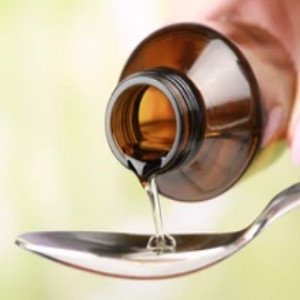 Welcome
Welcome
“May all be happy, may all be healed, may all be at peace and may no one ever suffer."
Square Pharmaceuticals Ltd.

Adryl 10mg / 5ml

Generic for Diseases
- Hives (Cold urticaria)
- Allergies
- Allergic conditions
- Allergic rhinitis
- Allergies
- Chickenpox
- Chronic urticaria
- Common cold
- Extrapyramidal symptoms
- Insect bites
- Insect stings
- Insomnia
- Motion sickness
- Perennial or seasonal allergic rhinitis
- Pregnancy-associated nausea and vomiting
- Prolonged vomiting
- Rhinitis
- Rhinorrhoea
- Serum sickness
- Stings
- Transfusion reactions
- Vestibular neuritis
- Wheezing
Diphenhydramine is an antihistamine with anticholinergic and sedative effects. It competes with histamine for H1-receptor sites on effector cells in the GI tract, blood vessels and respiratory tract.
Diphenhydramine is indicated for the treatment of followings:
- Seasonal, perennial, vasomotor rhinitis
- Urticaria, angioneurotic oedema, anaphylaxis
- Pruiritic conditions
- Premedication for emesis and motion sickness
- Miscellaneous like meniere's disease and parkinsonism
Adult-
- Most allergic conditions: 25-50 mg three times a day with a further 50 mg at night.
Children-
- 1 to 5 years of age: 5 mg i.e., 2.5 ml of elixir 4 times a day
- More than 6 years of age: 10 mg i.e. 5 ml of elixir 4 times a day
Known hypersensitivity to Diphenhydramine Hydrochloride, Ammonium chloride is contra-indicated in presence of impaired hepatic or renal function.
Side effect includes sedation, dizziness, tinnitus, fatigue, ataxia, blurred vision, diplopia, euphoria, and epigastric discomfort.
Overdose Effects
Symptoms: Impaired consciousness; psychosis, seizures, antimuscarinic symptoms (e.g. mydriasis, tachycardia, tachyarrhythmias), resp failure, rhabdomyolysis; acute delirium with visual and auditory hallucination (topical).
Caution should be exercised with patients in whom drowsiness is undesirable e.g., drivers, machine operators. Concomitant consumption of alcohol or central nervous system (CNS) depressants will potentiate drowsiness.
Pregnancy & Lactation
Category B: There are no adequate and well controlled studies in pregnant women using diphenhydramine hydrochloride. Therefore, diphenhydramine hydrochloride should be used in pregnancy only if clearly needed. Diphenhydramine hydrochloride has been reported to be excreted in breast milk and thus, use of diphenhydramine hydrochloride in lactating mother is not recommended.
Adryl 10mg / 5ml and more Available Brands
Racedot 100mg
Trevox 500mg / 10...
Xylocon 0.03%
BetriXa 40mg
Ceftron 1gm / vial
Eporen 5000IU
Rozy 0.5mg + 0....
Revira 500mg
...
To be happy, beautiful, healthy, wealthy, hale and long-lived stay with DM3S.